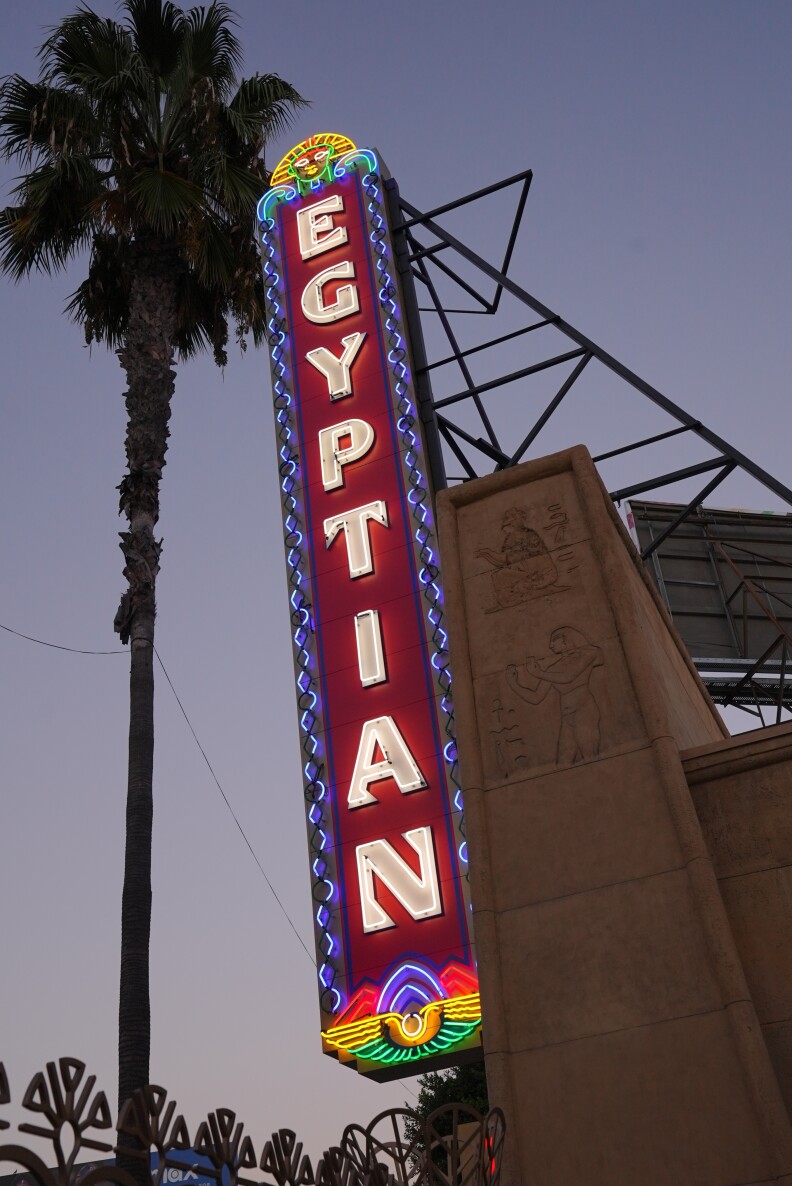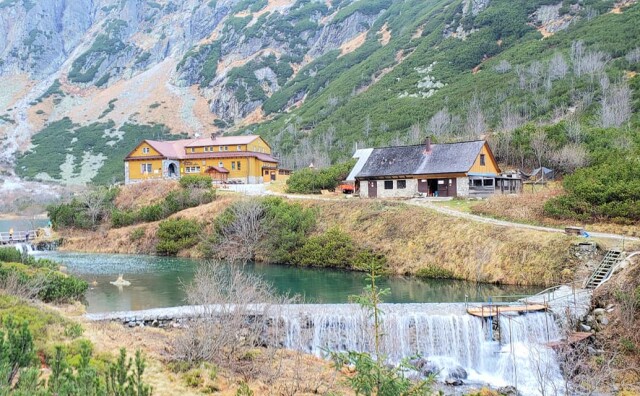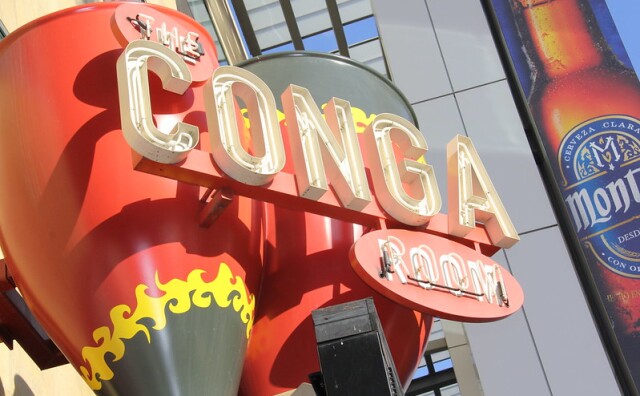The Los Feliz 3, a vintage triplex movie theater in the heart of the L.A. neighborhood, feels like a time machine. Just below Griffith Park, tucked away near the indie bookstore Skylight Books, the old Hollywood bar The Dresden, and the classic diner House of Pies, it’s an almost idyllic conception of a classic moviegoing experience.
As Sarah Winshall, independent film producer and co-founder of the L.A. Festival of Movies puts it: “This is nice. This is L.A.”
It’s the kind of outing that feels rare in a time when movie theaters of all sizes are struggling nationwide. And the theater itself is an experience. Of the three darling screens inside — one a red velvet shoebox, one with a groovy '70s pastel mural of shooting stars —it's Cinema 1, modern black with green lighting that holds the regular, popular screenings of the American Cinematheque.
The Los Feliz 3 was once an art house theater run by the Laemmle family (yes, that Laemmle) and now it's owned by Vintage Cinemas. It, like all theaters, struggled during the pandemic, but it was able to bounce back with some outside help.
Three theaters, 1,500 screenings
In 2021, the Los Feliz 3 marquee lit back up on Vermont Avenue, featuring the black and yellow logo of the American Cinematheque.

The American Cinematheque, or AC, is a nonprofit organization founded in the 1980s by filmmaker Sydney Pollack alongside Gart Essert and Gary Abrams as a “year round film festival.” With a monumental 1,500 screenings a year and programming ranging from director retrospectives, Y2K favorites and art-house classics alongside special guests and Q&As, the AC has certainly lived up to that promise over the last 40 years. (Yes, this year is the 40th anniversary of the AC’s founding.)
In addition to the Los Feliz 3, the AC also screens films in two other iconic venues that are crucial parts of L.A.’s history: The Aero in Santa Monica and The Egyptian Theatre in Hollywood.
As artistic director Grant Moninger puts it: “We like to think of all of our theaters as different auditoriums and the roads and streets and freeways are lobbies.” He says, “You can go to each auditorium and experience the American Cinematheque rather than it happening all in one building.”
The Egyptian
For years, the AC didn’t have a permanent home, screening films in various theaters and studios around town, until damage from the Northridge earthquake left a historic venue empty and created an opportunity.

In 1996, “the city of Los Angeles sold the Egyptian Theatre to the American Cinematheque for $1,” says Moninger, ushering in the next era of the AC. While Netflix currently owns the Egyptian, the AC has a 100-year lease to screen in the building on weekends.
The Aero
Over in Santa Monica, the AC has leased the Aero Theatre since the early 2000s. The Aero, so named for its aircraft industry ties, has been operating as a movie theater since WWII.
Initially opened as part of the development from the Douglas Aircraft Company in Santa Monica, The Aero ran films late into the night for factory workers, according to professor and historian Ross Melnick. “When you would come off of your shift at 4 a.m. and you were too wired to go to sleep, you could go to the movies."
As the aircraft industry faded, the business of movies picked up, and Santa Monica’s demographics started shifting. It wasn’t a surprise that by the early 2000s, people wanted a movie theater that “mimicked some of the love the Egyptian was getting on the other side of town,” says Melnick.
The Aero’s become a great space on the west side for events and director Q&As without having to “drive all the way from Santa Monica to Hollywood at 6 o'clock at night,” because according to Melnick, “it’d be easier if you go to the moon.”

After a million-dollar renovation by the AC, the Aero reopened in 2005 and often sells out special events and Q&As in “about 14 seconds,” Melnick says. Now with three great venues under their belt, Moninger says the AC is “looking for more.”
The programmers
Like other theaters and programming groups, the AC shut down during the pandemic. Having just sold the Egyptian to Netflix and with the new revenue and time to build out the brand, Moninger says “we decided we were going to come out of the pandemic really hard.”
That meant setting goals like screening 1,000 movies a year and convincing the board to lease the Los Feliz 3 screen. And achieving those goals meant working with a crack team of film programmers.
Moninger says the key was asking, “What if we had a lot of great young programmers with tons of interests that are super dynamic, that can bring in new films, but that know and have a passion about all kinds of films?”
The American Cinematheque hired Imani Davis and Cindy Flores, who joined senior film programmer Chris Lemaire. Together, their work across all three theaters — running new film series alongside regular programming and events like Beyond Fest — has blown the AC's initial 1,000 screenings a year goal out of the water.

In addition to loving early 2000s films, Davis says she finds herself focusing on up and coming filmmakers. “I keep an eye out for directorial debuts, and then short filmmakers and local filmmakers,” she says.
It was a focus she knew she wanted to bring to the AC and, last year, she launched PROOF, a proof of concept short film festival that’s coming back for its second year.
“There was a want to do more with short films and emerging talent," she says, "so that’s been special, to have this place where we can uplift and give a platform to people who are up and coming."
Cindy Flores’ love of nonfiction brought a nine-day documentary takeover of all three theaters to the AC. This Is Not A Fiction meant that, as Flores says, “you are gonna go see a documentary and you’re gonna look at this lineup and there is gonna be something in there for you.”
Imani Davis describes the three theaters as each having their own distinct vibe — “there’s something classic” about a film at the Aero, and The Egyptian lets people see a film on “the biggest screen possible” — and that also leads to opportunities for subversion, like screening Jackass in a 100-year-old movie palace during a documentary film fest.
Lemaire heads up the annual festival Bleak Week (that’s a week of films chock-full of despair and bleak storylines, chased with Paddington and Paddington 2), which this year is expanding to the East Coast with showings at the Paris in New York City. Lemaire says the three L.A. venues really allow for an “eclectic idea about what film programming can be.”
But at the end of the day, AC screenings are about an audience and an experience.
“It's cinema. It's the big screen. It's a communal experience that should be shared,” Moninger says. “Art films and commercial films should all succeed next to each other and people should go to the movies and have a great time.”
Check out Bleak Week at the American Cinematheque starting on June 1. You can find the American Cinematheque's whole programming calendar here.








